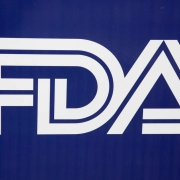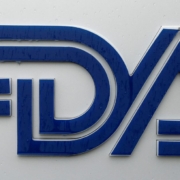FDA Adcomm votes 14-1 to pull Covis’ Makenna from the market
FDA Adcomm votes 14-1 to pull Covis’ Makenna from the market
Published: Oct 20, 2022
By Tristan Manalac
BioSpace
The FDA’s Obstetrics Reproductive and Urologic Drugs Advisory Committee voted nearly unanimously Wednesday to withdraw approval of Covis Pharma’s preterm birth drug Makenna (hydroxyprogesterone caproate injection).
After nearly three days of discussions and arguments, the advisory committee voted 14-1, backing the withdrawal of Makena’s approval.
This recommendation comes after results of the post-approval confirmatory study PROLONG failed to show clinical benefit from Makenna, falling short of its primary objective to decrease preterm births and improve infant outcomes.
“Makena has not been shown to improve neonatal outcomes from premature birth, is no longer shown to be effective for its approved use and has known risks,” the FDA’s outside experts noted in their briefing document. “For these and other reasons detailed herein, Makena should be withdrawn from the market.”
Covis’ preterm birth drug was first approved in 2011 through the FDA’s accelerated pathway. At the time, data from the Maternal Fetal Medicine Unit Network Trial 17P-CT-002 (Trial 002) showed that a 250-mg injection significantly suppressed the rate of preterm births.
Though this was not a direct measure of clinical benefit to newborns, the Center for Drug Evaluation and Research deemed it could be reasonably predictive of lower infant death and illness and granted Makena accelerated approval.
As part of the accelerated pathway, Covis was required to conduct a post-market follow-up analysis of Makena to verify the drug’s efficacy. Even before Makena received approval, the Swiss drugmaker had already initiated the PROLONG study.
Post-Marketing Study Challenges
However, due to recruitment challenges in the United States, the study mainly included patients from Ukraine and Russia, who, according to Covis, had a much lower risk profile and experienced a different healthcare standard than the Trial 002 population. Owing to these background differences, PROLONG could not replicate the initially observed benefits to Makena.
“If CDER had access to the data from both Trials 002 and 003 (PROLONG) in 2006–2011, at the time the application was being considered, together with all the other evidence available today, it would have concluded that efficacy had not been shown,” the advisory committee wrote in their briefing documents.
Under these circumstances, the drug would not have been approved under either the accelerated or traditional pathways, the committee added.
In opposition, Covis maintains that given the key differences in the study populations, PROLONG was underpowered to accurately assess Makena’s efficacy, pointing out in the company’s briefing document that “there may have been an unintentional selection bias in enrollment.”
“Given its shortcomings, PROLONG could not confirm the Meis trial (Trial 002) findings because of flaws in the enrollment of its study population,” Covis continued. “As such, PROLONG does not and cannot invalidate the clinical benefit observed in the Meis study.”
The FDA is expected to reach its final and official decision on Makena in the coming months.
In a press statement after the vote, Covis reiterated it stands by Makena and believes it remains an effective treatment option in high-risk women. The company will work with the FDA to identify the best next steps for the drug.
Source: BioSpace




 Reuters
Reuters



 Reuters
Reuters
